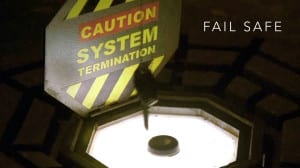´What are your top 3 tips to help others avoid phishing scams?´
There are plenty of tips on the internet that give great advice on how to avoid phishing scams, and there will be other authors on this site that will be giving very similar advice. For me though, it always comes down to the following three thoughts that I keep in mind whenever I see an email that could possible lead to a scam.

1. Is it too good to be true?
If the email in question is offering me something for nothing, especially if there is money, or a monetary value involved, this type of email falls into the “too good to be true” category. I have yet to come across an example of when someone really was giving away iPad’s, cash or holidays without some kind of quid pro quo involved. If your answer to the above question even looks like it might be a “yes”, the email and its contents can probably be ignored.
2. Don’t Click it!
 I have borrowed this particular phrase from Jaded Security who coined it a few years ago, and I like it because to be honest it is simple and memorable advice. There are nuances to this of course, but unless you are experienced just don’t click links in your email (see number three). As you get used to looking out for this kind of email there will of course be other telltales that will help you know if an email is genuine or not. For instance, is the email from a close friend, but they haven’t addressed you by your nickname, and seem to be oddly formal, or have more spelling mistakes (or even not enough) in their message? It could be that they have been compromised and you are in their address book and therefore being targeted.
I have borrowed this particular phrase from Jaded Security who coined it a few years ago, and I like it because to be honest it is simple and memorable advice. There are nuances to this of course, but unless you are experienced just don’t click links in your email (see number three). As you get used to looking out for this kind of email there will of course be other telltales that will help you know if an email is genuine or not. For instance, is the email from a close friend, but they haven’t addressed you by your nickname, and seem to be oddly formal, or have more spelling mistakes (or even not enough) in their message? It could be that they have been compromised and you are in their address book and therefore being targeted.
Some people regularly send links in emails, others almost never; if that’s the case, ask yourself why they have suddenly started today seining you a link to a sneezing panda clip.
Finally, if your bank sends you a link to change your password because of system upgrades, don’t click the link they send, but go to your usual bookmark for them. Your bank should never do this anyway, but clicking on a link in an email like this is almost guaranteed to not send you to your bank, but a very convincing fake site set up to harvest your usernames and passwords. Just don’t click it.
3. Fail Safe
 It is always better to mistake a genuine email for a scam rather than the other way around. The consequences of clicking something are very serious whereas the consequences of not clicking on the attached link are rarely, if ever, serious. Additionally, if it is a genuine request, the sender is likely to send a reminder or contact you through another medium such as SMS, letter or telephone. Of course there are plenty of scams through these mediums too (another topic perhaps?), but you will have the balance of probabilities on your side, and the knowledge you haven’t done anything stupid.
It is always better to mistake a genuine email for a scam rather than the other way around. The consequences of clicking something are very serious whereas the consequences of not clicking on the attached link are rarely, if ever, serious. Additionally, if it is a genuine request, the sender is likely to send a reminder or contact you through another medium such as SMS, letter or telephone. Of course there are plenty of scams through these mediums too (another topic perhaps?), but you will have the balance of probabilities on your side, and the knowledge you haven’t done anything stupid.
Read the other advice given on Information Security Buzz for this topic, and choose the advice that makes sense for you and your company. Three good pieces of easy to remember advice is going to be much more effective than ten pieces of fully qualified but difficult to remember advice.
Thom Langford | Sapient | Director, Global Security Office | @ThomLangford
To find out more about our panel members visit the biographies page.
The opinions expressed in this post belongs to the individual contributors and do not necessarily reflect the views of Information Security Buzz.



